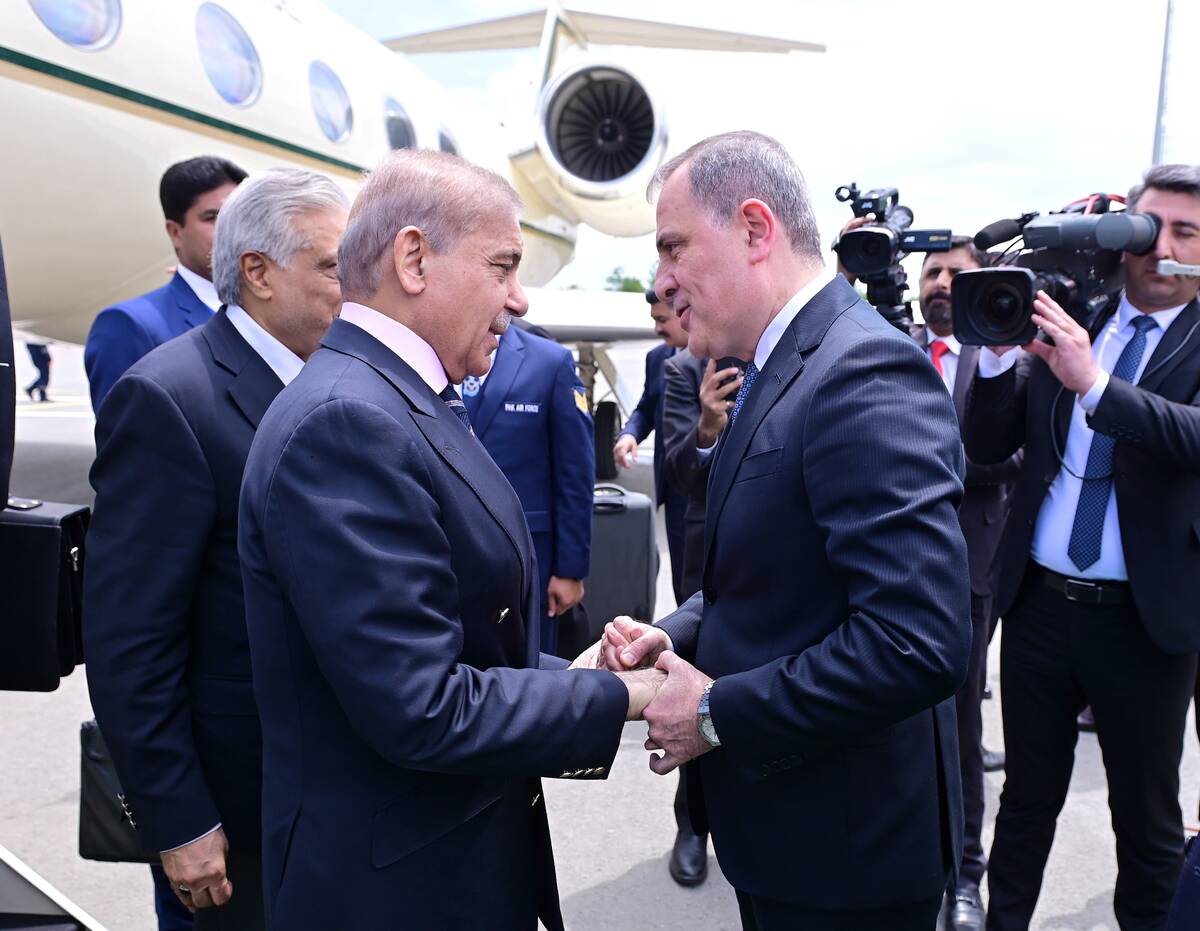HYDERABAD, Pakistan: Spraying pesticides on his parched ridge gourd cultivation a street away from the Indus River, Pakistani farmer Homla Thakhur is worried about his future. The sun is at its peak, the river is running very low, and India has vowed to cut supplies upstream after a deadly militant attack in Kashmir.
“If they stop water, all of this will turn into the Thar desert, the whole country. The basic issue is water. Nothing is possible without water,” said Thakhur, 40, before heading back to the river to refill the tank for the spray gun.
“If water comes, it will bring prosperity, otherwise we will die of hunger,” he said.
His nearly 5-acre (2 hectare) farm is located in the Latifabad area of the southeastern province of Sindh, from where the Indus flows into the Arabian Sea after originating in Tibet and snaking through India. Thakhur’s fears were echoed by more than 15 Pakistani farmers and several other experts, especially as rain has been scanty in recent years.
For the first time, India on Wednesday (April 23) suspended the World Bank-mediated Indus Waters Treaty of 1960 that ensures water for 80 percent of Pakistani farms, saying it would last until “Pakistan credibly and irrevocably abjures its support for cross-border terrorism.”
India says two of the three militants who attacked tourists and killed 26 men in Kashmir were from Pakistan. Islamabad has denied any role and said “any attempt to stop or divert the flow of water belonging to Pakistan ... and the usurpation of the rights of lower riparian will be considered as an Act of War.”
The treaty split the Indus and its tributaries between the nuclear-armed rivals.
Two Indian government officials, who declined to be named discussing a sensitive subject, said the country could within months start diverting the water for its own agriculture, using canals while planning hydroelectric dams that could take four to seven years to finish.
Immediately, India will stop sharing data like hydrological flows at various sites of the rivers flowing through India, withhold flood warnings and skip annual meetings under the Permanent Indus Commission headed by one official each from the two countries, said Kushvinder Vohra, a recently retired head of India’s Central Water Commission.
Nadeem Shah, who has a 150-acre farm in Sindh where he grows cotton, sugar cane, wheat and vegetables, employing 50 people, said he was also worried about drinking water.
“Allah is the provider. There will be rains, God willing, and the water will come, but yes, this is a potential threat at the moment,” he said.
The three rivers meant for Pakistan, a country of 240 million people, irrigate more than 16 million hectares of farmland, or up to 80 percent of the total.
Ghasharib Shaokat of Pakistan Agriculture Research, a Karachi research firm, said India’s actions inject uncertainty “into a system that was never designed for unpredictability.”
The treaty remained largely unscathed even when India and Pakistan fought four wars since separating in 1947, but the suspension sets a dangerous precedent, Pakistani politicians said.
“My biggest concern is that we are already locked into generations of conflict, and by exiting the Indus Water Treaty, I believe we’re locking future generations into a brand new context of conflict between India and Pakistan,” said Bilawal Bhutto Zardari, Pakistan’s former foreign minister.
“That must not happen.”
Panic in Pakistan as India vows to cut off water supply over Kashmir attack
https://arab.news/2s2xd
Panic in Pakistan as India vows to cut off water supply over Kashmir attack

- India has suspended the Indus Waters Treaty of 1960 that ensures water for 80 percent of Pakistani agriculture
- India says militants who killed 26 people in Kashmir last week were from Pakistan, Islamabad has denied any role


















